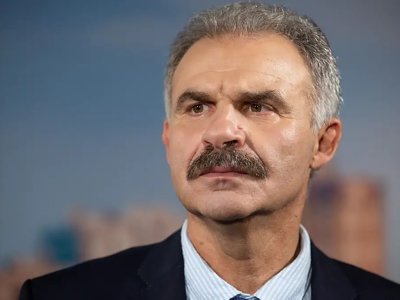Kazakh leader’s visit to Xinjiang region raises questions

President Kasymzhomart Tokayev visited China’s western Xinjiang region this week.
It could be a favour to Beijing – a gesture supporting the latter’s policy of denial about the alleged suppression of Xinjiang’s Muslim ethnic groups.
Tokayev stopped over in Urumqi on Wednesday, on his way back from Beijing, where he attended the Belt and Road Forum.
According to Tokayev’s press office, in Urumqi he met Ma Xingrui, the secretary of the Chinese Communist Party for Xinjiang. At the meeting, Tokayev “highly praised” economic ties between Kazakhstan and Xinjiang.
Ma, in his turn, said that Xinjiang was interested in expanding economic cooperation with Kazakhstan in the energy and transportation sectors.
Nothing was mentioned about Beijing’s well-documented campaign of suppressing Xinjiang’s Uighurs, Kazakhs and other ethnic groups, who are culturally and linguistically close to Central Asia.
Beijing has always treated Xinjiang’s Uighurs, the largest ethnic group there, with suspicion, fearing separatism and, more recently, Islamic radicalism.
Around 2017 it launched a particularly cruel and broad campaign of suppression, jailing hundreds of thousands of Uighurs and others, and placing over a million in so-called “re-education camps”, where they were forced to denounce their religion and culture, witnesses and rights groups said. The campaign also involved separation of children from parents.
The abuses became known, to some extent, thanks to Kazakhs from Xinjiang who had moved to Kazakhstan after the latter’s independence. They started raising the issue when their relatives back in China were targeted by the campaign.
The Kazakh Foreign Ministry secured the release of some of those Kazakhs and helped their resettlement to Kazakhstan.
The Kazakh authorities initially allowed Xinjiang Kazakh activists to set up an office in Almaty and hold protests. However, later they started to curb such activism, under apparent pressure from Beijing.
Beijing denies any rights abuses in Xinjiang, saying that any detentions or other security measures taking place there are part of a fight against terrorism.
For its strategic political and economic goals in Central Asia, Beijing needs stability in both Xinjiang and Central Asia. Any trouble in Xinjiang could potentially spread to Central Asia, and the other way round. A separatist movement in Xinjiang could find support among Central Asians.
Therefore, China must work “on both fronts”.
While keeping a tight rein on Xinjiang, it needs to maintain a good public image in Central Asia.
In March, in an unusual move, Xinjiang’s Communist party boss Ma Xingrui visited Kazakhstan, Uzbekistan and Kyrgyzstan. Chinese provincial officials do not usually make foreign visits.
The Chinese embassy in Kazakhstan actively promotes Xinjiang as an economically flourishing region.
For Kazakhstan, and the rest of Central Asia, China is too big and too important economically and politically to attempt to raise the Xinjiang issue with it.
Human rights, generally, are not high on the regional governments’ agenda.
- Последние
- Популярные
Новости по дням
8 мая 2024







